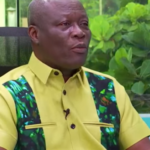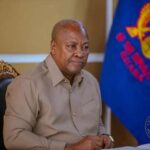In its quest towards enhancing grassroots democracy and social accountability, the Integrated Social Development Centre (ISODEC) has organized a capacity-building workshop for Accountability Labs (ALs), within the Mfantseman Municipal Assembly of the Central Region.
The Accountability Labs engender social accountability by supporting active citizenship,
The workshop, supported by STAR-Ghana Foundation under the project dubbed Action for Voice for Inclusive Development (AVID-2) aimed to equip young leaders and active citizens with the skills and knowledge necessary to influence local governance and advocate effectively for their communities. It was also meant to build, sustain and amplify community voices to advocate and claim their rights whilst holding duty bearers accountable.
The trained youth were selected from various communities, including Anokye, Ewoyaa, Abonkor, Krampakrom, Krofu, Ansaadze, and Afrangjuah within the Mfantseman municipality
The Head of Policy and Programmes at ISODEC, Mr. Bernard Anaba submitted that over the years, communities have not been able to come together and mobilize for action due to their low level of consciousness and inability to galvanize mass movements and articulate their issues using tools and strategies that will enable them to sustain social action for change.
Thus, the capacity building exercise was organized to raise youth awareness and empower them to actively address shared challenges through volunteering and community-driven initiatives, particularly focusing on issues relative to the negative impacts of mining and the effects of climate change on access to clean water, among others.
Mr. Anaba explained that ISODEC had recently gathered data on community needs, paving the way for the workshop to deepen participants’ understanding of their roles in local decision-making and access to social accountability mechanisms.
“This is to strengthen the capacity of these ALs on local participation in Assembly processes and social accountability tools available to citizens.”
The Assistant Development Planner at the Mfantseman Municipal Assembly, Mr Sakyi Julius disclosed that during the needs assessment to develop the Medium-Term Development Plan (MTDP), it emerged that water was the major concern affecting the communities as a result the Assembly has taken a decision to drill mechanized boreholes in the communities using the District Assembly Common Fund (DACF).
He stated that the Assembly maintains an open-door policy, allowing any community member to come in at any time and openly share their concerns to have them addressed.
Mr Michael Tettey, a volunteer at ISODEC educated participants on how to submit petitions and the responsibilities of the Metropolitan, Municipal and Districts Assemblies.
He led a discussion on the how community members can participate in the local governance processes. The discussions focused on the purpose of the Client Service Unit, its functions and responsibilities. He also discussed the purpose of the Public Relations and Complaints Committee (PRCC) and its functions.
On his part Mr. Kojo Bondzie, a youth representative from Abonko, shared that although he regularly visits the Municipal Assembly as a Unit Committee Member, he was unaware of the existence of some committees until he participated in the workshop.
“As a unit committee member, I now know that a committee exists at the Assembly to resolve complaints or issues. It was good I participated in this training program,” Mr Bondzie revealed.
The workshop concluded with the formation of Eight-Member community-led committee to tackle the second most pressing issue identified through the project’s pairwise ranking, which has to do with poor telecommunication networks.
By: Mohammed Suleman














